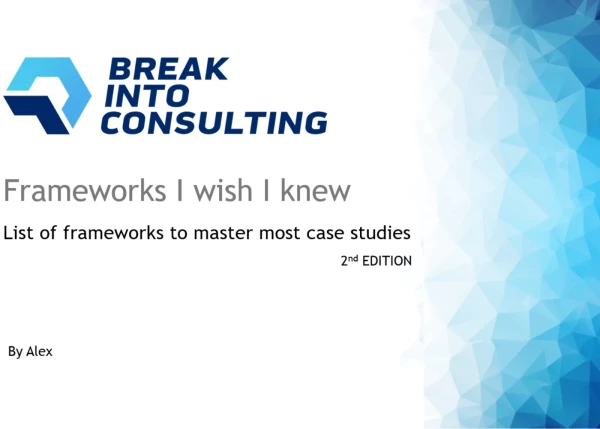At the beginning Victor Cheng and especially his Look over my Shoulder program helped me a lot. But I think his approach is not feasable for current requirements anymore. He almost alawys sticks to the basis of the 3C&P framework and of course proofs it right in many cases.
But this is what is in my opinion not considered as sufficient at MBB. So how to develop a framework that covers all relevant aspects but doesn't look like a well-known one?
What would be your suggestion to get out of this dilemma.
Thank you very much.
Best


